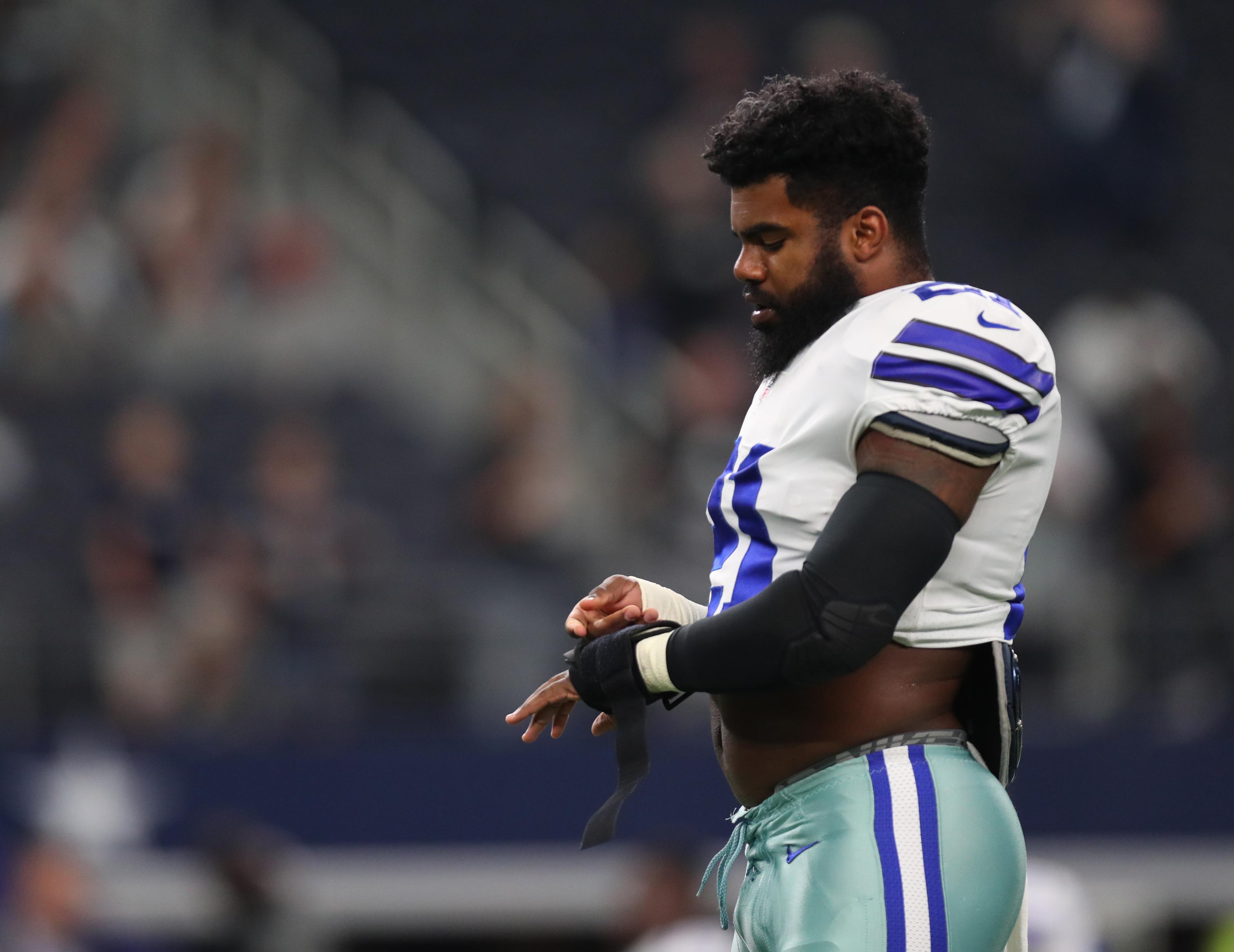
All of the NFL’s screwups eventually intertwine. Deflategate was mentioned seven times in an NFL court filing in opposition to a lawsuit filed by Ezekiel Elliott. The league suspended Elliott six games due to allegations of domestic violence because Roger Goodell made that the standard length in response to the wave of criticism he received for initially suspending Ray Rice only two games in 2014. Each circus influences the next one.
The NFL has reached the threshold: We can now safely say that the league turns virtually every possible flash point into a confused, jumbled mess. Just try to think of which major disciplinary decisions the NFL has dealt with efficiently. The Rice incident became a cable-news-engulfing fiasco. Deflategate became such a widely known legal joke that there was a class about it at a university. And does anyone really know what happened with Bountygate? This all occurred within the past five years.
And now, we have the Elliott matter, which took its latest turn Tuesday night. A small sampling: Earlier on Tuesday, Pro Football Talk mentioned the controversy surrounding the NFL’s long-discussed rule that a suspension had to be implemented by Tuesday at 4 p.m. ET for it to be in effect for the following Sunday’s games. Despite the Cowboys and Elliott’s reps claiming in various reports that such a rule exists, the NFL told NFL.com’s Tom Pelissero that no such rule existed. And now, of course, despite arbitrator Harold Henderson upholding Elliott’s suspension, the Dallas running back is eligible to play this weekend apparently because of that rule. The NFL is Bart Simpson trying to convince Milhouse that he never had any goldfish to begin with.
The NFL is a $14 billion industry, and it seems impossible that the league would be making it up as it goes along but—well, here we are.
Last month Elliott was suspended for six games. That, in and of itself, isn’t something worthy of a scandal. But the problem here is the process.
As laid out in his statement Tuesday, Henderson’s job is not to review or second-guess the commissioner’s ruling. Rather, it’s to figure out, essentially, whether the proper guidelines were followed. “Here the process for imposing discipline outlined in the Policy has been followed closely, step by step,” Henderson wrote.
Except, Henderson is looking at the case through the lens of the NFL’s rules. The year-long Elliott investigation has seemed convoluted for a while now, and as Mike Florio noted, Henderson wasn’t supposed to look into the possible underlying inconsistencies of the investigation, but whether the league acted within the technicalities of the structure it created for itself:
The Commissioner didn’t personally observe the credibility of the witnesses? He didn’t need to. The Commissioner didn’t invite ... the person who interviewed the accuser six times to a meeting aimed at helping him reach a decision? He didn’t need to. The accuser wasn’t required to testify at the appeal hearing? She didn’t need to.
Legal analyst Michael McCann said that the nature of the CBA makes it “hard to prove” Goodell is wrong on disciplinary matters. And yet the NFL manages to find cracks in its own case. The league has the CBA on its side and yet it pushes and pushes until it crosses the bounds of acceptability. So maybe the problem is just the process itself. In No Country for Old Men, Anton Chigurh asks, “If the rule you followed brought you to this, of what use was the rule?" At some point, if the NFL’s process always ends in calamity, it’s time to reexamine the rules.
It’s been a decade since Goodell introduced the then-lauded personal conduct policy, and nearly five years ago he landed the cover of Time magazine, which dubbed him “The Enforcer.” Today, it’s not quite the worst cover choice of all time—Sports Illustrated ran Tim Couch and Akili Smith on its cover with the phrase “Pick of the Litter”—but it’s bad.
When you talk to people who were involved in the most recent CBA negotiations, in 2011, you get the feeling that few things are more important to Goodell than disciplinary power. When the union brought up perhaps going to a neutral-arbitration model that would hand decision-making to a third party instead of Goodell playing judge-jury-executioner, the NFL made clear that it wasn’t a realistic option. But why? That responsibility may eventually be what leads to his downfall.
So now, Elliott enters the Brady Zone: There are dueling lawsuits between the NFL and the Players Association, and a judge will rule on a temporary restraining order against the suspension Friday. Elliott’s lawyers are talking about his eventual day in federal court. This scandal is far from over, and it’s only a matter of time until the next one begins.